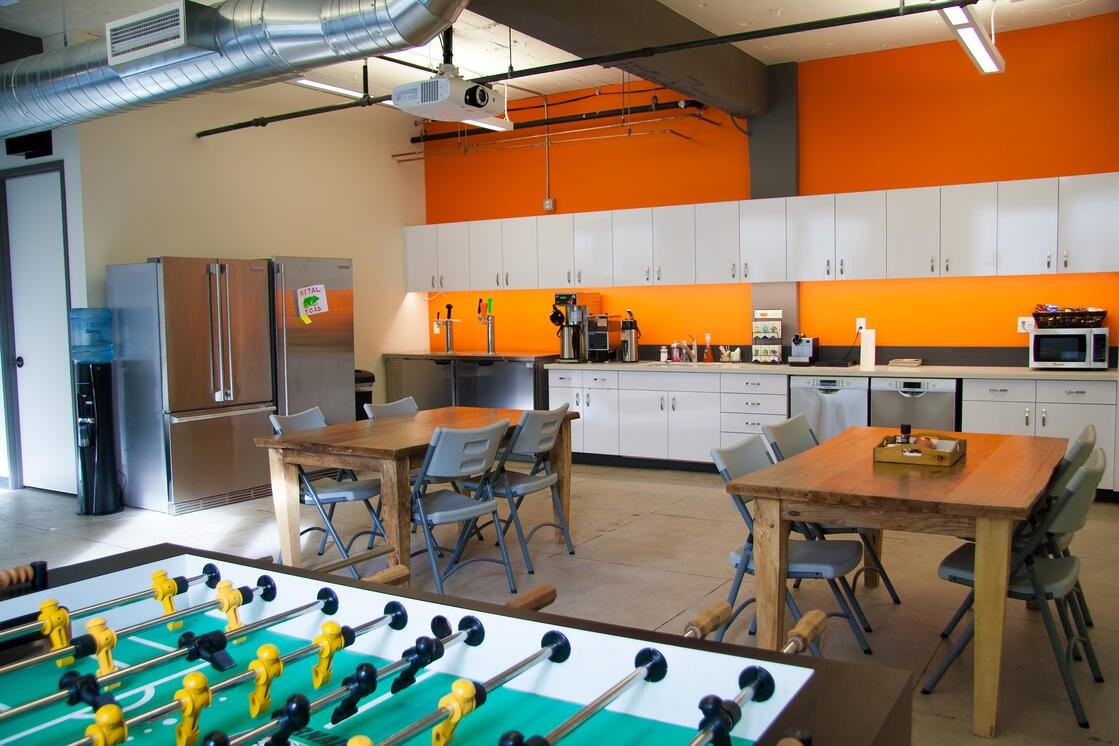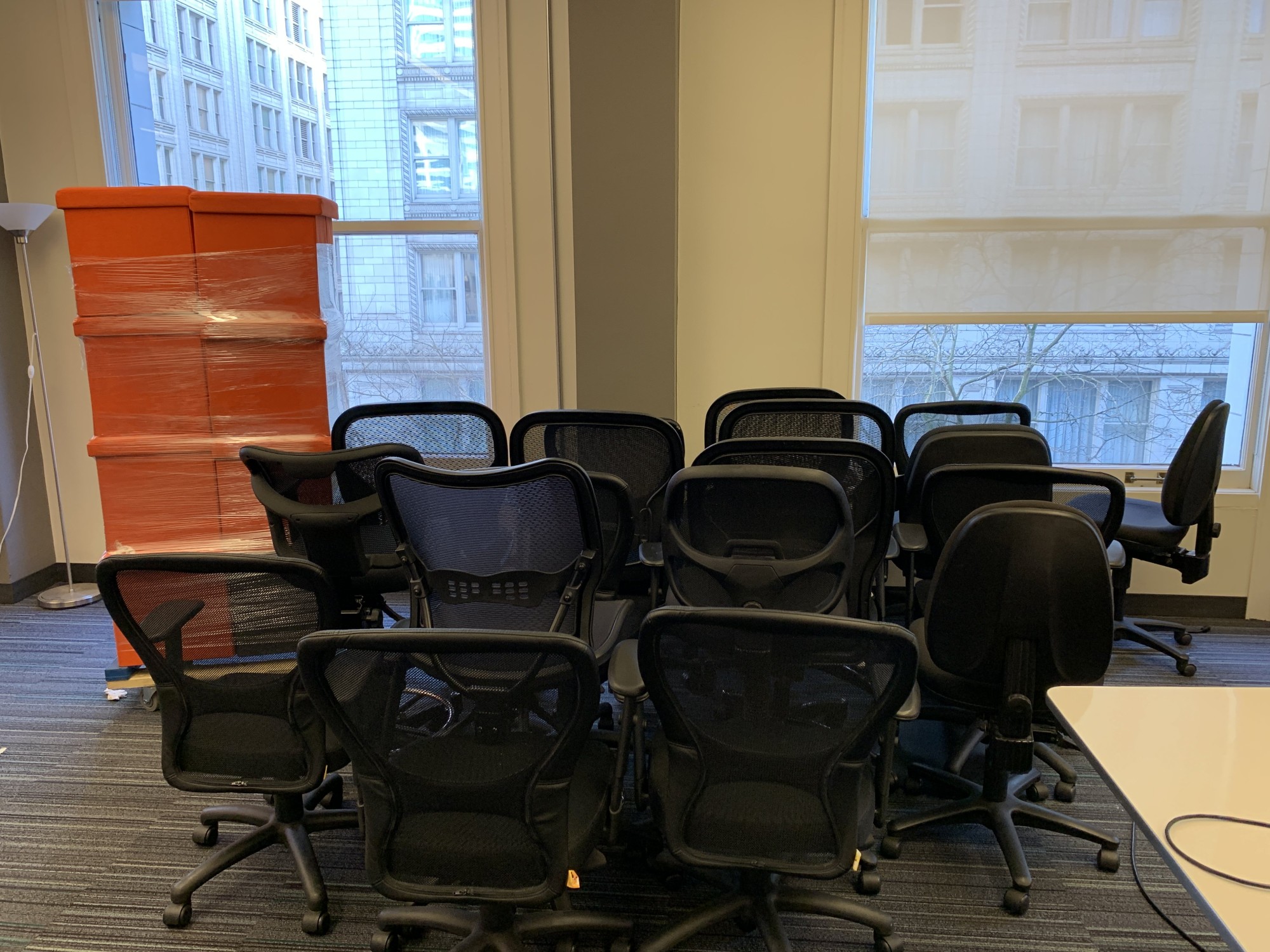On March 1, 2020, I handed in the keys to the Metal Toad office in Portland, Oregon — our corporate headquarters for the past five years — back to the building manager. Metal Toad had gone remote-first back in October of 2019 and we just didn't need the office anymore. 16 days later, when the Governor of Oregon first announced state-wide shutdowns due to COVID-19, the Metal Toad management team breathed a collective sigh of relief. That, at least, was one thing we didn't need to worry about.
(NOTE: This article is written with our personal journey; if you are looking for a checklist, skip to "How to Close an Office" further down in the email.)
--
The first step
The journey to close the office actually began more than 3 years ago, when I relocated my family from Portland, Oregon down to Los Angeles, California. The move was promoted by a number of things: our focus on the entertainment industry, the opportunity provided for growth in a large metro, and my oldest child's desire to study animation in college.
Initially, I has reserved a four person office in Los Angeles — but by the time we had hired four Los Angeles team members (about a year), everyone had opted to work from their area of town. A few months later, we reduced our LA office to just a single desk for me — with a commitment to remote work for future LA workers. To my surprise the Portland team asked if they could work from home as well. We all agreed that made sense, and by the time the dust settled, there were only four workers coming into our beautiful office that could support 80 people.
I was shocked.

Our office and the prime downtown location had always gotten high marks from our staff. People from other companies frequently stopped by, we hosted community events. And for good reason. We had all of the things you could want and more: stocked refrigerators, foosball table, stand up arcade, fresh fruit, and snacks — all in the cultural and culinary heart of the city, which in a foodie city like Portland, is really saying something.
This vote, made by our staff in 2019, has been echoed all around the world: workers prefer the flexibility of working from home. And why shouldn't they? Commuting to and from work represents hundreds of hours of lost time for people. That's time they could have used to finish projects or time they could have spent with their kids. The culture zeitgeist of work has shifted over the past 5 years, and the unprecedented impact of COVID-19 as a forcing function only accelerated a change that has been long coming.
The impact of COVID-19
Working From Home had been picking up for all kinds of companies, but COVID-19 kicked things into high gear. All kinds of companies, who's CEOs have told me they never would have approved working from home are now not just ok with it, but they are actively supporting this shift becoming permanent within their organization. Think about that for a moment, and ask yourself: what will the long term impacts be on commercial real estate? The value of used office furniture? The premium put on location vs. space in the home? For small companies, the value of getting out fast, or reducing their footprint is significant.
How to close an office
From personal experience, there are several key elements to getting out of an office:
- Find a commercial real estate attorney
- Find an office furniture liquidator
- Find an electronics liquidator
- Port your critical business applications to the Cloud
- Hire a commercial mover
- Get ready for some late nights
1. Commercial real estate attorney
The first step in evaluating your office closure is checking out your lease. Many commercial leases are pretty iron clad, but talk to a lawyer. They can advise you on your options and (importantly) draft a letter to your landlord so they know that you are serious about leaving. Look for a win-win, if possible.
2. Office furniture liquidator

While everyone would like to be able to get a premium for their furniture (we paid a ton for ours new), a furniture liquidator is the best way to get things rolling. Don't make the mistake of trying to sublease with furniture in your office. I was told at some point it almost never works, and we tried unsuccessfully to sublease ours like this for over 6 months.
3. Electronics liquidator
More furniture liquidators don't deal in electronics (or appliances) but there are specialist liquidators. Be sure to ask what people buy and what they don't buy. Often times they can provide a recommendation, but it's rare to find a vendor who will buy everything in the office.
4. Business applications to the Cloud
Many businesses, large and small, have taken office space for granted and have mission critical business applications running of servers in a closet somewhere. This may be an email server, accounting software, CRM, or even a marketing site. While workers were in the office this space was often see as "free", but with workers sent home, keeping these systems up and running as the sole occupants of office spaces, have suddenly made them incredibly expensive. The Cloud makes this type of setup unnecessary. This was an easy step for us, and as AWS Cloud Consultants we'd be happy to help to make the shift.
5. Commercial movers
My recommendation to all businesses is to go professional when it comes to moving. If you need to ship anything to multiple locations, store things, or have any complexity in your needs, go pro. I've had good luck with national moving companies like Mayflower and bad luck anytime I've tried a local service. Caveat emptor.
6. Late nights
Moving from one office to another is tough; moving from an office to nowhere is even tougher. A lot of hard calls need to be made by the ownership about what to do with everything, even down to the paperclips and whiteboard erasers. It is very hard work to fully delegate, as there will inevitably be blockers: what to do with commemorative t-shirts? Do you take low ball offers for the TVs or allow employees to purchase them? My advice is to create four buckets where you allocate everything:
A. Sell
B. Trash
C. Store
D. Ship (and store)

Be prepared for late nights, for things to get lost in the shuffle and some amount of things you'll need to put into storage. Keep your head focused on the increased margin when you no longer have to shell out those big bucks for the commercial lease, or can put your commercial real estate on the market.
Tip of the iceberg
For those of you still holding on to the idea that things are going to back to the way they were, I recommend rethinking. The genie is officially out of the bottle as far as workers are concerned, and what does the commute look like is no longer a question people are asking when they are buying residential properties. Cities are seeing a mass exodus, major companies are declaring remote work is the new normal, and commercial real estate values are poised for a massive reset. Now is the time to take this seriously. The iceberg has been sighted and this is just the beginning.